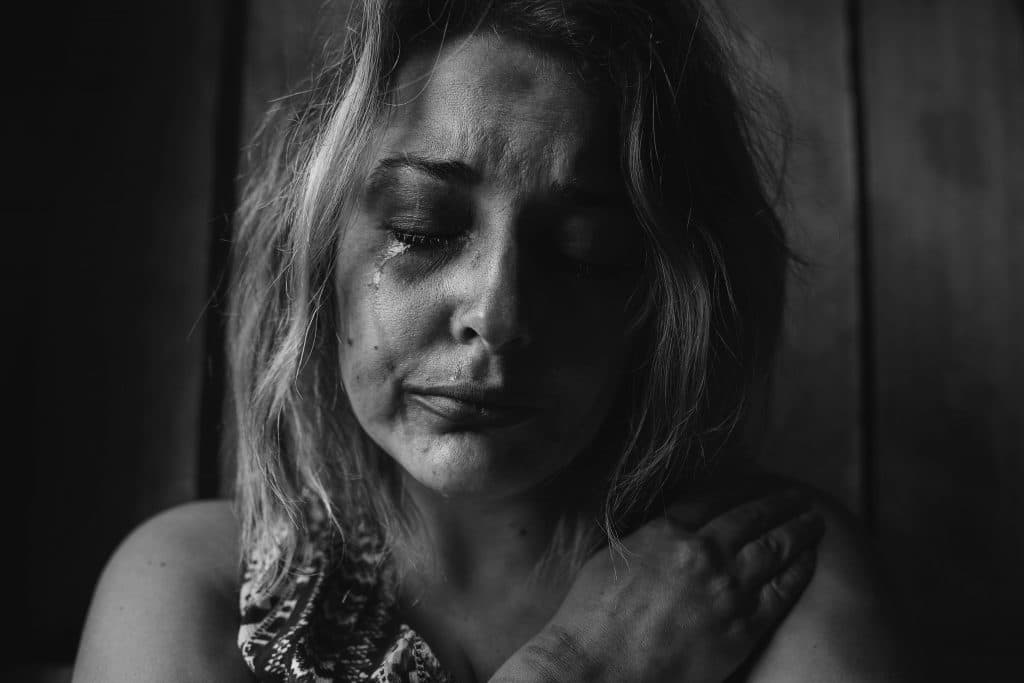The theme for this year’s Perinatal Mental Health Week is ‘Breaking Down Barriers’. The Perinatal Anxiety & Depression Australia (PANDA) website has some fantastic information and resources to help new and expecting parents recognise the signs of perinatal mental illness and seek support with looking after their mental and emotional wellbeing.

Perinatal mental illnesses like anxiety and depression are common and can be serious. One in five expecting or new mothers and one in ten expecting or new fathers will experience anxiety and/or depression, affecting around 100,000 families across Australia every year.
Left untreated, perinatal mental illness can have long-lasting impacts on parents, partners, baby and the rest of the family.
What does perinatal mean?
The term ‘perinatal’ refers to the period from the conception of a child through to the first year after birth.
‘Antenatal’ refers to the pregnancy period. ‘Postnatal’ refers to the first year after birth.
What’s the difference between anxiety and depression?
In general terms anxiety refers to an aroused mood – panic, agitation, frustration or anger.
Depression is often associated with low mood, sadness, hopelessness or withdrawal.
Many expecting and new parents experience both anxiety and depression at the same time.
Talking about it
Many parents experiencing perinatal mental health challenges feel overwhelmed, confused, isolated and ashamed about how they’re feeling. If this is you, try to remember that these thoughts are common, you are not alone and that help is available.
It can be hard to recognise that something is wrong and it takes courage to seek help. Community expectations and stigma can make it difficult to acknowledge that you are struggling and seek the support you need.
But it’s important to get help early so you can get support to take the first steps to recovery. That’s the best outcome for you as well as your baby and partner.
Admitting you need help and seeking treatment or advice is not a sign of weakness. It shows that you want the best for yourself and your family.
Recognising perinatal mental illness
Perinatal mental illnesses like anxiety and depression can be difficult to recognise for a whole range of reasons. Symptoms are often dismissed as normal parts of pregnancy or early parenthood. Shame and stigma can lead to a ‘mask of coping’. Symptoms can look different for each person.
Signs may include:
- Feeling sad, low, or crying for no obvious reason
- Persistent, generalised worry, often focused on fears for the health or wellbeing of your baby
- Being nervous, ‘on edge’, or panicky
- Being easily annoyed or irritated
- Withdrawing from friends and family
- Difficulties sleeping, even when your baby is sleeping
- Abrupt mood swings
- Feeling constantly tired and lacking energy
- Physical symptoms like nausea, vomiting, cold sweats, lack of appetite
- Having little or no interest in the things that normally bring you joy
- Fear of being alone or with others
- Finding it difficult to focus, concentrate or remember
- Increased alcohol or drug use
- Panic attacks (racing heart, palpitations, shortness of breath, shaking or feeling physically ‘detached’ from your surroundings)
- Developing obsessive or compulsive behaviours
- Thoughts of death, suicide or harming your baby.
Postnatal psychosis
Postnatal psychosis is a rare but serious illness that affects one to two new mums in every 1000 and can put both mother and baby at risk. It almost always requires hospital admission. The symptoms often arrive suddenly and can include extreme mood swings, significant behaviour changes and loss of touch with reality.
If you suspect a new mum you know may have postnatal psychosis, you can:
- take her to a doctor
- take her to the nearest hospital emergency department
- call PANDA’s National Helpline – 1300 726 306
Where to seek help for perinatal mental illness
We know that everyone experiences postnatal anxiety and depression differently. The best way for people who are struggling to start feeling better will depend on their own experience – what their symptoms are and how strongly they feel them.
What we do know is that the sooner people seek support, the sooner they can start feeling better.
It’s important for expecting and new parents who are worried about their emotional and mental wellbeing to seek support. They can speak with a trusted health professional such as a doctor or family health nurse, or call PANDA’s free National Perinatal Mental Health Helpline.
PANDA’s National Perinatal Mental Health Helpline 1300 726 306 9am – 7.30pm Mon – Friday (AEST/AEDT).
PANDA’s Mental Health Checklist for Expecting and New Parents
It can be hard to know what emotions and experiences are normal and which ones should give you cause for concern. PANDA’s Mental Health Checklist for Expecting and New Parents is a free, anonymous online tool on PANDA’s website that asks questions about your thoughts and feelings and will give an indication of whether your experiences could be a reason to seek help.
Upon completing the Checklist you will receive a Results summary that can be taken to appointments with care providers to help you talk to them about how you’ve been feeling. You can also opt to send your results directly to PANDA and request a call back.
Melville mums share their stories

From the Melville Mums Facebook group, we have some amazing mums who have shared their experiences with perinatal anxiety and depression in the hope that their stories let other mums know they are not alone and that there is no shame in seeking the help they need.
“I started feeling severely depressed probably a couple of weeks into becoming pregnant. It was so severe I couldn’t get out of bed and I cried endlessly. My husband got me to see a psychiatrist and psychologist and I was quickly diagnosed perinatal. It was so bad I had thought of terminating the pregnancy and even called a few abortion clinics. I started seeing a psychologist regularly but to be honest it didn’t help. Medication was what helped me the most. Looking back, if I could have found an in-person support group with women going through similar experiences, that would have helped me the most. I tend to benefit from group therapy more than individual”.
“I had anxiety after my first baby two years ago and my Child Health Nurse put me into a Mother Nurture group facilitated by a counsellor, which was a great experience and I still see the other mums from the group.”
“My husband experienced postnatal depression and anxiety. We were fortunate enough to have a councillor at Ngala recognise the signs in my husband. Prior to that, I wouldn’t have thought that men were affected, but the complete change of life and increased responsibility took its toll. After the second child, although we knew what might be coming, it had an even greater impact. It lead to a breakdown that resulted in medication and a long slow recovery (still in the process and my youngest is 16 months!) but I think raising awareness around the impact on men, that they too need the support and guidance from professionals and not just assuming it will pass, is so important.”
“My first daughter was born 14 years ago in a busy, understaffed London hospital and I had a really traumatic birth experience. I had pre-eclampsia and ended up having an emergency C-section under general anaesthetic and my tiny little girl was taken away to the special care unit. It was a really awful experience and I think I had undiagnosed PND. While it was definitely a “thing” 14 years ago, people weren’t so open back then so I just pretended everything was fine but the result was that I had very little happiness or joy for that first part of my daughter’s life, especially overseas with no support network.
Fast forward ten years and when I got pregnant with my new partner all those familiar feelings started to rise up again with a lot of fear and anxiety that I’d have the same experience. Thankfully I had a great GP who I could talk through my fears with and we did a mental health plan and got a referral to the Raphael centre for counselling. It was such a fabulous service and helped reduce my anxiety during my pregnancy. My counsellor was amazing and helped me with mindfulness techniques, concepts like ‘the good enough mother’ as well as reading and ideas for journaling.
I can’t recommend the service of the Raphael Centre enough as it meant I’ve been able to joyously embrace the experience of having my two youngest children, and my mental health has been better than ever. And apart from the cost of the mental health plan, it was bulk billed and you get a minimum of 6 free sessions. So if I could pass on any “wisdom” it would be to reach out, as getting help can really transform your experience of motherhood and, just because you have a rough start to becoming a mum, things can definitely change for the better.”
“I was diagnosed about 12 years ago in my mid 20s, however have experienced mental health issues since my childhood; it was never openly spoken about back then and I never really understood what was happening to me, or why I felt like I didn’t belong. I was medicated through my (current/amazing) GP about 6 years ago when the diagnosis recurred and I was made aware of what depression and anxiety was and how it was affecting me. I took myself off my antidepressants just before I was pregnant with my son 3.5 years ago. I did this knowing we were going to try for a baby, and at that time I was able to somewhat manage my mental health through rest, meditation, and some tools I learnt from various psychologists, clinical psychologists and psychiatrists I had seen up until that point.
After the birth of my son, the CHN recommended I see my GP again after scoring 16/20 on my postnatal form. My daughter was born in January this year, 8 weeks early due to my pre-eclampsia, extreme adema and anaemia. I had been medicated for 3 years on an antidepressant plus a “short term” anxiety medication (Lorazepam). I had been seeing a psychiatrist at the Elizabeth Clinic who specialised in mental health issues & pregnancy since November and we were working towards a long term strategy to managing both my depression and anxiety through the combination of 2 antidepressant medications which would take away my need of the anxiety tablets which were a highly addictive, short term bandaid.
Unfortunately, my symptoms of pre-eclampsia kicked in about a week later (was expecting pre-eclampsia as I had it with my son) at 25 weeks and the progression happened so quickly that I was hospitalised at 31 weeks and an emergency c-section performed at 32+2. My daughter was born with an addiction to my medications however through my breast milk was able to get the dose she required for her withdrawals. She was extremely jittery but did not suffer long term effects; impacts on the fetus and newborn were discussed with me at my psychiatrist appointments.
I guess I was lucky enough that my D&A was something I’d been treated for in the past. I knew my limits, knew when I was experiencing hard times and what had helped in the past (although as my mental health worsened I needed to review what worked, and still am), and had the time to seek professional health & advice to overcome various situations (i.e. medication effects during pregnancy).
I think the most important thing for women experiencing this would be support, from professionals, family & friends. Understanding when they are having a “rough” patch and what they need to get through it.
“I’ve suffered with depression before and I had been told that I was high risk for PND, but after having my baby it crept up on me and wasn’t as easy to distinguish as in the past.
I’d had to have a cesarean, which I hadn’t wanted because I wanted the immune benefits of a vaginal delivery for my son. I had a baby who was very different to my expectations – he was alert and hungry very often and waking hourly or less at night, but I couldn’t breastfeed to start with and unfortunately had to use little bottles of formula, which I also hadn’t wanted because of immune benefits for baby. And eventually when my son could latch he would scratch at me trying to avoid feeding from me. I felt so incredibly rejected. This coupled with pumping to stimulate milk supply, family who kept telling me what my baby was saying rather than letting me get to know my own child, and the shock of the realization of the loss of freedom and it was a blur.
I wanted to stay home where I was safer and my son was safer. He cried in the car and in the pram. He wanted to be held. We had to use breastfeeding aids and I felt clumsy. I felt afraid to take my baby out where it might be too hot, I felt irritable towards my dogs and the fur they couldn’t help shedding. I didn’t want people to possibly give my son germs and I worried about him stopping breathing and sids. Things came to a head at 9 weeks when I was with my son alone and our gains in breastfeeding went backwards and I needed to use my sns again. My son was spending a lot of time crying and the IBLCL I saw said he looked like he had reflux.
I went to the Dr and I couldn’t stop crying. My GP put me on lexapro and my son onto reflux medicine. I got help through the Raphael counselling service and I started meeting with my mums group. I went to Australian Breastfeeding Association (ABA) meetings where I knew there wouldn’t be anyone who was sick. Initially the lexapro made me worse but my dose was put up and that helped. It took a few days to get past the initial side effects but it helped me so much with my anxiety. The ABA helped me feel confident about going forward with breastfeeding and at about 4 months we hit a groove and it was so much easier. The counsellor I saw worked on my confidence to speak up about receiving unsolicited advice about my son’s needs and validated my parenting choices.
Three years down the road, I have an amazing little guy and I am still on medication which I’m happy to stay on. I think that it was hard to separate depression and anxiety from the sleep deprivation and the feeling of letting go. I still struggle when I get criticism about my parenting from relatives but mostly things are a great deal better. I’m able to plan for the future and my son and I have a great bond. I want him to grow up to be a kind person and I have a tribe of people around me who support us in this.”
Where to seek support
If you’re an expecting or new parent and are worried about your emotional and mental wellbeing, you can speak with a trusted health professional such as a doctor or family health nurse, or call PANDA’s free National Perinatal Mental Health Helpline 1300 726 306 9am – 7.30pm Mon – Friday (AEST/AEDT).
There is also important and up-to-date information about perinatal anxiety and depression and postnatal psychosis on PANDA’s websites:
panda.org.au
howisdadgoing.org.au



